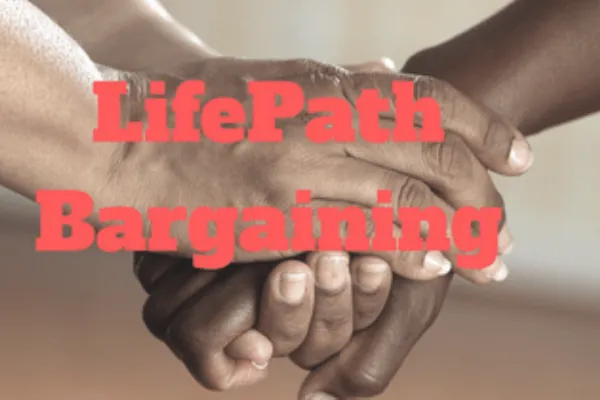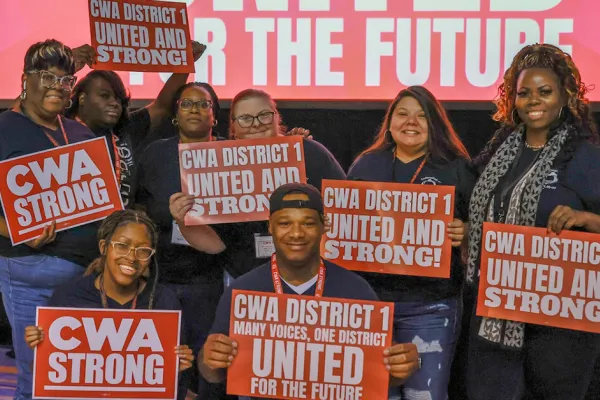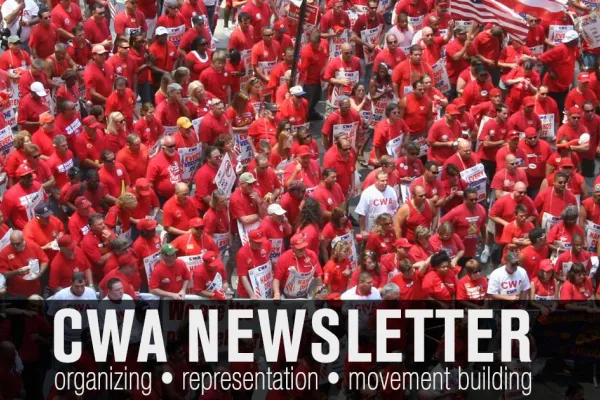President Cohen?s Labor Day 2014 Message
President Cohen's Labor Day message is also posted on Huffington Post.
Working Americans Can't Just Wait for the Next President
We tried waiting and hoping for real change six years ago. Today, income inequality grows steadily worse while economic opportunity is out of reach for most. Collective bargaining coverage for working Americans has fallen to the lowest level in eight years. Productivity grows while wages have not yet rebounded to the 2008 level.
Earlier this year, and largely unnoticed, the 160 million-member International Trade Union Confederation (ITUC) published its report on the global state of workers' rights. It rated nations a "1" if abuses were uncommon and a "5" if workers had no rights at all. The U.S. came in at 4, meaning "Systematic Violations of Workers Rights." We lagged behind 73 other nations. For the first thirty years following passage of the National Labor Relations Act in 1935, the U.S. would have been rated a "1." None of the more than 100 other nations in this report has declined as the U.S. has, and many countries like Brazil, Uruguay, South Africa, and most of Eastern Europe have improved dramatically.
How bad is a "4"? This is hurricane season and if we think of a category 4 storm, like Superstorm Sandy, we get some idea of the severity of this crisis.
Just 6 percent of private sector U.S. workers have collective bargaining rights. Including public workers only brings the percentage of U.S. workers with bargaining rights to 11%. This is down from 35% some fifty years ago. No other nation has experienced a similar decline.
For all the useful talk about U.S. economic inequality and calls to raise the minimum wage, 2014 mostly will be another year like the last 50, with persistent attacks on workers' rights, huge income and wealth gains for the top 1 % and a declining standard of living for the other 99%.
Yet Labor Day this year will be much like recent years, a little less labor and a little more like the end of summer. Political attention begins to focus on November elections, but the food fight for the next presidential election is warming up.
Six years ago, as the election of a new president loomed, there was much anticipation about a different economic order, and a focus on adoption of the Employee Free Choice Act, passed in 2008 by the House of Representatives with a 60% margin.
As important as a raise in the minimum wage is, that still would leave the other 95% of U.S. workers with the same troubling economic future that they face today. Workers would continue to have no hope on workers' rights and would be subject to a political system based more than ever on wealth thanks to a string of Supreme Court decisions.
The next presidential election likely will focus much less on workers' rights, and more on social issues and government spending. What we learned over the past six years is that the combination of dysfunctional Senate rules, big money in politics, the attack on voting rights, and barriers to citizenship for 20 million immigrants are real barriers to economic change. Unless we break through these barriers, it's just more of the same for working Americans.
There is hope if we link workers' rights to the huge democracy movement that is growing across the U.S. Labor, plus greens, consumers, and democrats from all parties realize that our nation today is not what democracy looks like. Can we all focus on the blocks to a 21st century democracy as at least our number two issue? Fifty large membership organizations now endorsing the Democracy Initiative say, "Yes we can!" Our collective membership totals more than 35 million and if we can focus a growing part of our time and resources on these structural blocks as well as workers' rights, the environment, poverty, and human rights, we might even dream the American dream again.
On September 8, the Senate will vote on a constitutional amendment that would reverse recent Supreme Court decisions and allow Congress to regulate election spending. It is now clear the amendment will receive majority support but based on likely total opposition from Republicans, it will fall short of the two-thirds required by the Constitution to move forward. More important, the vote will signal that there is serious support for reform, whether through an eventual Supreme Court reversal or amendment.
For the millions of Americans facing another Labor Day without labor rights, it is also a time to commit much more deeply to broader reform of our democracy and think far beyond the next election.
We do know what democracy should look like. Get big money out of politics. A Senate that debates and votes on the key issues of the day. Universal voter registration so all citizens can turn out on Election Day. A path to citizenship for immigrants that at least resembles the path that my family and others who immigrated 100 or more years ago followed.
This Labor Day I will look forward to a warm summer day, but I'm also dreaming of the movement we can build.
Read more at: http://www.cwa-union.org/news/entry/president_cohens_labor_day_2014_message
LifePath 2024 Bargaining Report: Tentative Agreement
CWA District 1 Holds Annual Leadership Conference
CWA Exposes How AT&T’s Dangerous Gigapower Business Model Undermines Good Jobs and Public Safety in Arizona


